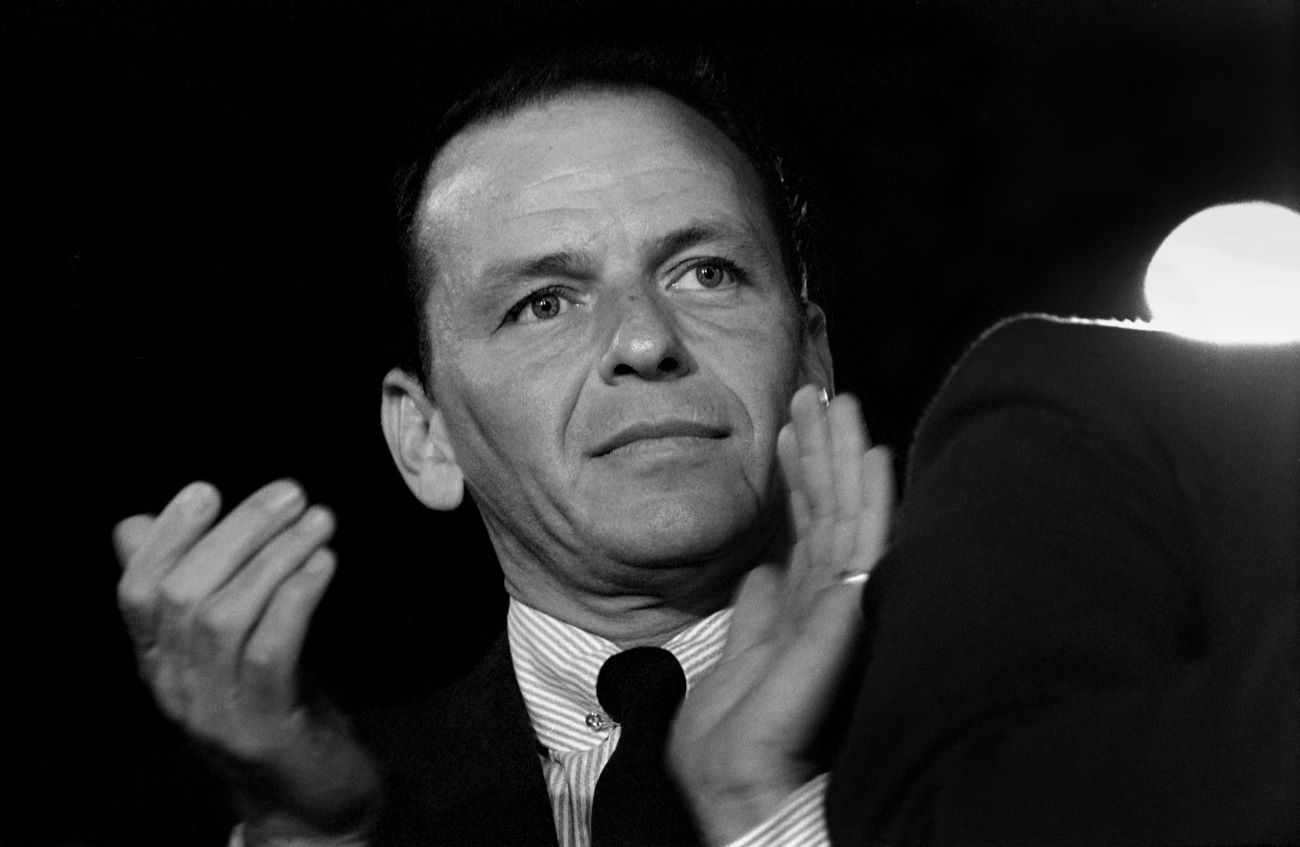Frank Sinatra Said It Was ‘Wrong’ That Critics Weren’t Harsher With Him
TL;DR:
- Frank Sinatra’s temper was so explosive that people worried about insulting him.
- He believed that critics were helpful to his career.
- Frank Sinatra didn’t extend this same line of thought to journalists.

Frank Sinatra often turned his explosive temper on journalists. If the singer perceived a story to be unflattering or overly gossipy, he had no qualms about publicly going after the writer. Because of this, many were afraid to criticize him. Therefore, it may seem surprising that Sinatra actually wished that critics would be harder on him. He explained why he thought they were necessary to his work.
Frank Sinatra had a famously short temper
Sinatra had a short fuse, something that was well known to those around him. While he could be extraordinarily generous to friends — and even strangers — he would swiftly retaliate against any perceived slight, no matter how minor. Because of this, most people tried to avoid getting on his bad side. Even comedians avoided making jokes about him.
Sinatra’s longtime friend Don Rickles was thought of as the only person who could actually poke fun at Sinatra. Once, he noticed Sinatra in the audience of his show and called out to him.
“Hey, Frank, make yourself at home,” Rickles said, adding, “Hit somebody!”
The room fell silent.
“Everyone looked to see what Frank would do,” director John Landis told The Washington Post. “Because there were those 12 guys over there with guns.”
Ultimately, though, Sinatra was able to laugh at this ribbing about his temper.
He claimed he wanted critics to be harder on him
Typically, though, Sinatra did not like it when people criticized him, even jokingly. Surprisingly, he welcomed criticism of his music.
“I’ve never had any quarrel with the critics,” he said in a 1965 interview with the Hartford Courant. “I’ll pay $100,000 to anyone who can prove I’ve ever abused one. I may think they’re unfair sometimes, but that’s their opinion.”
He asserted his belief that critics were important to any singer.
“Critics are necessary: now I’m not defending critics, but many performers aren’t aware of what good, honest criticism is,” he explained. “All they are looking for is the perfect review and that’s impossible to get. One of the businesses in which I’m most interested is the recording business. I have yet to read an honest recording review — a completely honest one — like one that says, ‘This singer made a mistake in the second chorus,’ and points out what it was.”
Sinatra even welcomed more criticism of his own work, as he believed it could help him.
“I read reviews, including some of my own recordings where I’ve made errors and know it, but nobody points it out,” he said. “They should point it out and say ‘watch it next time.’ Maybe they’re being nice to us, or afraid we won’t take out any more ads: but it’s basically wrong. Youngsters never learn unless there’s somebody around to point out where they go wrong.”
Frank Sinatra had a tense relationship with journalists
Sinatra did not extend this same attitude to journalists. On one occasion, he was nearly trapped in Australia after he made angry comments about reporters during a concert. He also physically assaulted a columnist who wrote an unflattering article about him.
“He didn’t suffer fools gladly. This man had no gray in him,” his friend and collaborator Quincy Jones told the Desert Sun. “He either loved you from the bottom of his heart – unconditionally – or he was capable of running over you in a Mack truck, backwards.”


